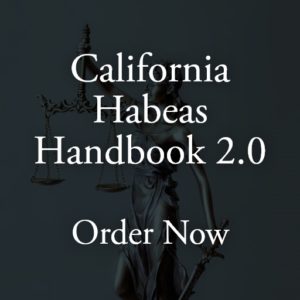Habeas Hint: SCOTUS equated the client’s right to maintain innocence with other rights that are so fundamental that only the defendant personally can waive them, e.g., the right to plead…
Read More
Most IAC claims are made against trial counsel, which is the focus of this column. Simply stated, IAC has two elements: (1) Deficient Performance; and (2) Prejudice. A lawyer performs…
Read More
Procedural Default (Acknowledging and Avoiding the Kiss of Death). Federal courts generally refuse to hear claims that were defaulted in state court because of an “independent and adequate state procedural…
Read More
No Facts: When No means Yes...Not so long ago, in a bleak turn of events for habeas petitioners, the U.S. Supreme Court held that where a state court's decision on…
Read More

